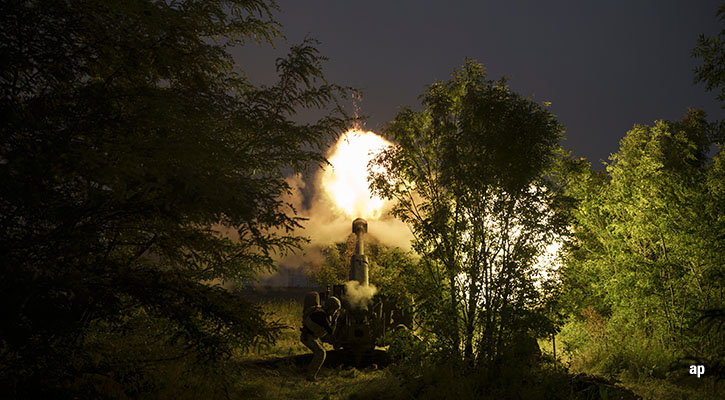James Gard: I'm delighted to welcome to the Morningstar studio for the first time, Jasmine Yeo, she's co-manager of the Ruffer Investment Company. Thanks for joining me today.
Jasmine Yeo: Thank you for having me.
Gard: So Ruffer's described as, all weather trust. I mean how would you describe the trust investment philosophy and how you operate, please.
Yeo: Yeah, so we started in 2004, the trust did, and we are part of the wider Ruffer strategy which kicked off in 1994, so 10 years prior. What we are aiming to do is preserve capital and grow it in all market conditions. So throughout the market cycle. Lots of people I think recognize or know Ruffer as a bear market operator, which in many ways is fair, because we have preserved investor capital through four of the crises we've experienced since we started. But what we are actually trying to do is protect in those difficult periods but also grow in the interim periods too.
Gard: Sure. So how do you protect on the downside, but then also capture the upside, when the market conditions are much better.
Yeo: So the interesting thing is that across those four crises where we have preserved capital, it required a very different portfolio in each to achieve that same result. And therefore the way we operate is really important in being unconstrained. So having the entire investment universe available to us, to look for both those protective assets and but also those opportunities too. So more recently it’s been really important to have that flexibility because last year for example we saw all conventional asset classes falling together. So we had to rely on some more unconventional protections through derivatives. But in terms of the way we approach building the portfolio, we're quite different, because we always think about those protective assets first. So layering in defensive positions which we think will appreciate, when the risks that we've identified do occur and only then do we start to think about risk as opportunity, which is almost flipping on its head way a lot of the industry do it. Where the starting point is risk, there is opportunity and then perhaps hedging or protecting is an afterthought.
Gard: So you obviously are very cognizant of the market risk, I mean do you think the markets are too complacent about inflation at the moment and do you have a short term market view and a long term view and how do they sort of marry up.
Yeo: So I think on inflation, it's very clear that we've just had a very large impulse inflation. And we're now coming back down the other side of it, particularly in the U.S. perhaps even the U.K. is facing few more of its own challenges, as we saw in the data yesterday. What we're very worried about, though, is that we're probably moving out of really a 30 or 40 year period where inflation had been very subdued, it was falling pretty consistently through that period and was very low and very stable. I think the market's view is that we are going to return to that period in actually pretty short order, perhaps by next year or the following. You can see that in the market's long term expectations for inflation, which have really been unchanged despite lots of events, huge amounts of stimulus that have occurred over the last couple of years. We think that is the risk that probably on average inflation over the next couple of years is higher, than it was in the old environment. There's lots of structural reasons in our economy that we can see for why that might be, whether it's a reversal of globalization, whether it's supply chain issues, whether it's geopolitics. But importantly, and what will make it more difficult for investors is we think it's likely to be more volatile. So similar periods of big impulses, but then falling inflation in other periods too, and you'll need a very different portfolio for those environments.
Gard: Sure. I guess investors are quite complacent. They kind of want to return to the sort of good old days where there was low volatility and big market returns. So that's kind of a bearish outlook, certainly in the short term, but are there any sectors or asset classes you're actually optimistic about and take a more bullish view on?
Yeo: Yeah, absolutely. So even though we are, as you say, very defensively positioned and quite nervous in the short term. The way we construct portfolios means that we always do have some risk assets with some allocations that we think can perform if the sun continues to shine. And one area in particular, we're sort of exposing that at the moment is through commodities. So in the shorter term, if we do get any more positive data out of China, if the economy holds up that little bit longer, commodity should benefit. But perhaps more interestingly over the medium term, if we do find ourselves in recession later this year, early next year. And the response to that recession is interest rate cuts and fiscal spending, right? Probably we see quite a quick return to nominal growth and again commodities should be a beneficiary of that, particularly if we do have a sort of more inflationary environment in the long run too.
Gard: And would the trust have any exposure to alternative assets?
Yeo: Yeah, so as I referenced really the the asset class that we're looking to preserve capital, if we do get a drawdown in equity markets in the short term are derivative protections. So they work a bit like insurance products, you have to pay to own them, which makes them somewhat frustrating because they don't give you a return, if they're not needed. But as last year demonstrated, and also in 2020, they were some of the biggest drivers of our performance and how we delivered positive returns in an environment where most asset classes were falling.
Gard: Sure. So in summary, volatility is here to stay, I think.
Yeo: I'm afraid so.
Gard: Okay. So thanks very much for your insights and your time today. For Morningstar I'm James Gard.




























